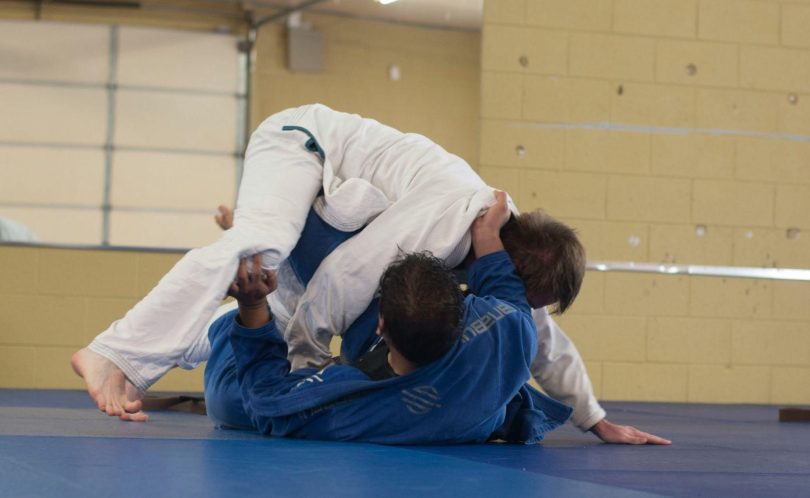Brazilian Jiu-Jitsu, commonly known as BJJ, is not just a sport but a comprehensive training that offers a multitude of benefits. Through regular training, practitioners develop psychological resilience, learn the value of persistence, and experience the joy of achieving personal goals. Furthermore, BJJ promotes a sense of community, providing a supportive network crucial for mental well-being. As George Mouchette defines it, BJJ instills confidence and teaches valuable life skills, making it an ideal activity for those looking to improve their physical and mental fitness.
Contents
Overview and Popularity of Brazilian Jiu-Jitsu
Brazilian Jiu-Jitsu emphasizes ground fighting and submission holds. It evolved from Kodokan judo in the early 20th century and has since spread worldwide, gaining popularity not only as a sport but also as a critical component of mixed martial arts (MMA). The growth of BJJ can be attributed to its effectiveness in MMA competitions and its appeal as a form of self-defense.
The mental benefits of physical activities like BJJ are well-documented. Regular participation in martial arts is associated with improved psychological well-being, including reduced levels of stress, anxiety, and depression. The discipline and focus required in BJJ training also foster mental resilience, equipping practitioners to handle life challenges more effectively.
As BJJ continues to flourish in gyms worldwide, it attracts individuals from all walks of life, each seeking to reap its physical and mental rewards. The sport’s technical nature, combined with the strategic mindset it stimulates, makes it more than just a physical endeavor; it’s a lifelong journey that impacts the mental health and overall quality of life of those who practice it.
Gaining Confidence through BJJ
Training in Brazilian Jiu-Jitsu profoundly impacts an individual’s confidence, requiring them to face challenges regularly, pushing them out of their comfort zones, and enabling them to achieve things they might have thought were beyond their capabilities. As practitioners progress, mastering new techniques and earning belts, their self-esteem elevates. This boost in self-confidence extends beyond the mats, influencing various aspects of their personal and professional lives.
The testimonials of many BJJ practitioners reveal a common theme: a significant improvement in self-image. This is particularly noticeable in how individuals handle social interactions and deal with adversity as the confidence gained through BJJ training helps people feel more in control of their lives.
Resilience and Mental Toughness
Resilience, a vital skill, is honed through the rigorous and often intense atmosphere of a BJJ dojo. The nature of BJJ training, where one frequently faces and overcomes physical and mental challenges, builds resilience applicable in all areas of life. The ability to get back up after being taken down, literally and metaphorically, is a fundamental lesson taught on the mats.
One might hear stories from BJJ athletes who have used the resilience built on the mats to overcome personal adversities. These narratives underscore the mental toughness that BJJ instills in its practitioners. Whether dealing with a tough loss in competition or facing personal trials, the resilience developed through BJJ provides a foundation for facing challenges with a poised and composed mindset.
Social and Therapeutic Benefits of BJJ
The community aspect of Brazilian Jiu-Jitsu is a powerful therapeutic tool. Joining a gym introduces individuals to a network of peers and mentors with similar goals and challenges. This sense of community not only fosters social connections but also creates a supportive environment where members can discuss their struggles and triumphs.
Additionally, the physical exertion involved in BJJ is a natural stress reliever. Engaging in intense physical activity triggers the release of endorphins, chemicals in the brain that act as natural painkillers and mood elevators. Many practitioners report feeling more relaxed and clear-headed after training sessions, highlighting BJJ’s role in managing stress and anxiety.
Challenges in Practicing BJJ
While Brazilian Jiu-Jitsu offers numerous benefits, it also presents several challenges that practitioners must navigate. The sport’s physical demands can be intense, with the potential for injury always present. Practitioners must learn to listen to their bodies and recognize the difference between beneficial discomfort and harmful pain.
Balancing competitiveness with mental well-being is another challenge. BJJ’s competitive nature can push individuals to their limits, sometimes leading to burnout or anxiety. Practitioners should maintain a healthy perspective on competition, focusing on personal growth and enjoyment rather than only on winning.







